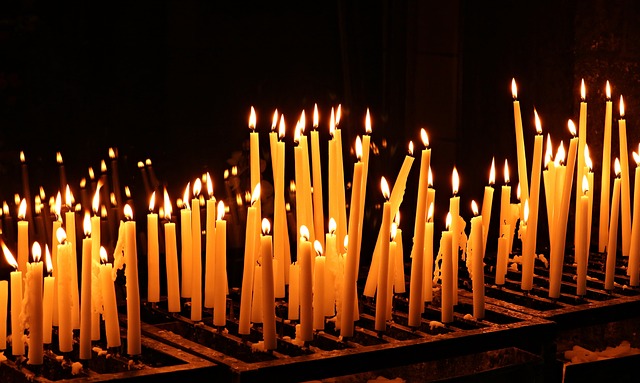MEET ARIANA
“Grief is a cruel kind of education. You learn how ungentle mourning can be, how full of anger. You learn how glib condolences can feel. You learn how much grief is about language, the failure of language and the grasping for language”
― Chimamanda Ngozi Adichie, Notes on Grief
We often fail to realize how frequently we are interconnected with, affected by, and influenced by grief until it strikes suddenly, much like a bolt of lightning! When grief unexpectedly descends upon us, the world continues with its usual course, and those who find themselves grieving – be it the loss of a cherished experience, a loved one, or a dear pet who occupied a special place in their hearts – are left stranded in a state of limbo, entrapped in a profound and overwhelming emotional abyss.
The nature of grief is a complex and enigmatic force. We may be living our lives, often oblivious to the invisible threads that connect us to the emotions of others or the potential for loss that awaits us. But when grief strikes, it becomes an undeniable force, pulling us into a whirlpool of intense feelings that threaten to engulf our very being.
Each person’s journey through grief is unique, for grief knows no boundaries or limitations. It can be triggered by the passing of someone close to us, the end of a significant chapter in our lives, or the departure of a loyal companion who brought immeasurable joy. No matter the catalyst, the aftermath of grief leaves us grappling with a maelstrom of emotions.
In the aftermath of a profound loss, time itself seems to warp and bend. Days blend into one another, and the once-familiar rhythm of life becomes an unfamiliar cadence. While the world continues to function around us, we find ourselves isolated in a realm of sorrow, feeling as if we are floating aimlessly through space.
Some may agree with me that the journey through grief is not linear; it is a maze of highs and lows, twists and turns. One moment, we may find ourselves overwhelmed by sadness, unable to comprehend how life continues without our beloved companion. And in the next moment, we may feel a spark of hope, a glimmer of light amidst the darkness, as we begin to accept the reality of our loss.
It is this maze that often leaves those that we love and trust unsure of how to react to us when we grieve. Moreso, society is left judging and unjudging why we choose different paths.
This blogpost does not present all the answers, it opens up a window into the planet where ‘Societal Expectations Meet Grief’.
How Grief Manifests Differently In Individuals Of Various Age Groups.
Society’s judgments about grief responses may arise from cultural norms, expectations, and stereotypes surrounding each age group. It’s essential to recognize that grief is a natural process, and there is no one-size-fits-all way to grieve. Here are some examples of how different age groups might respond to grief in ways that could lead to societal judgment:
Children (Age Group: 5-12)
Expression of Emotions: Children may express grief through play, drawing, or acting out their feelings. They might not have the emotional vocabulary to articulate their grief verbally, which could lead some adults to misinterpret their behavior as attention-seeking or disrespectful.
Short Attention Span: Children might appear to move on quickly or get easily distracted, leading some to believe that they aren’t affected deeply by the loss.
Teenagers (Age Group: 13-19)
Withdrawal: Teenagers might withdraw from their usual social activities or engage in rebellious behavior as a way to cope with their grief. Society may misinterpret this withdrawal as defiance or lack of respect.
Emotional Outbursts: Teens may have intense emotional outbursts as they struggle to process their grief. These reactions could be seen as immature or overly dramatic.
Young Adults (Age Group: 20-35)
Distractions and Avoidance: Some young adults might immerse themselves in work, hobbies, or partying to avoid facing their grief directly. This behavior might be judged as avoiding responsibilities or not taking the loss seriously.
Seeking Professional Help: Young adults seeking therapy or counseling to cope with their grief might be stigmatized as being “weak” or “overreacting.”
Middle-aged Adults (Age Group: 36-60)
Pressure to Stay Strong: Middle-aged adults might feel societal pressure to be strong and composed, especially if they are in caregiving roles. Expressing vulnerability might be judged as a sign of weakness or inability to handle life’s challenges.
Comparison with Others: Society might compare the grieving individual’s reactions to those of others, expecting them to “move on” or “get over it” at a certain pace, leading to judgment if they don’t meet these expectations.
Elderly Adults (Age Group: 60+)
Expected Acceptance: Elderly adults may face judgment for not accepting grief as a natural part of life or for expressing their pain too openly. There could be societal expectations for them to be more stoic or at peace with mortality.
Concerns about Burdening Others: Older adults might avoid sharing their grief with others, fearing they might be perceived as a burden or that people will distance themselves from them.
STOP JUDGING OTHERS
‘It is crucial for society to be compassionate and understanding towards individuals of all ages experiencing grief. People should be allowed to process their emotions in their unique ways without fear of judgment or stigma. Encouraging open communication, empathy, and support can help break down these societal barriers surrounding grief’.
DOES YOUR GENDER INFLUENCE HOW YOU GRIEVE?
Often, I cringe when people ask men to be strong during the processes of grieving, without knowing the dangers- this is often a catalyst for anger, withdrawal and substance abuse. It’s painful to watch how women who do not cry, go into mourning rites and crash are quickly boxed into ‘witchcraft zones’ and or gold digger categories. Often instead of being comforted, they are abandoned and castigated by the people they love and trust. Grieving is a process that mainly unfolds from within, beyond prying eyes, the colour of one clothes, the way we dress and how we act.
It’s important to note that there is no inherent biological or genetic programming that dictates how individuals of different genders process grief. Grief is a complex emotional response to loss, and while there may be some general tendencies or societal influences, there is no strict scientific evidence supporting the idea that genders are programmed to process grief differently. Please correct me if I am wrong, bring proof!
NOT JUDGING YOU
While I appreciate that gender norms and socialization can shape how individuals express grief. Boys may be taught to be stoic and hide vulnerability, while girls may be encouraged to be emotionally expressive. Coping mechanisms for grief can also be influenced by societal expectations related to gender, with men adopting problem-solving approaches and women seeking emotional support. However, it’s essential to recognize that these are general tendencies, and individuals may grieve differently from one another, I dare us to find ways to unburden ourselves and work on grieving how we see it fit.








